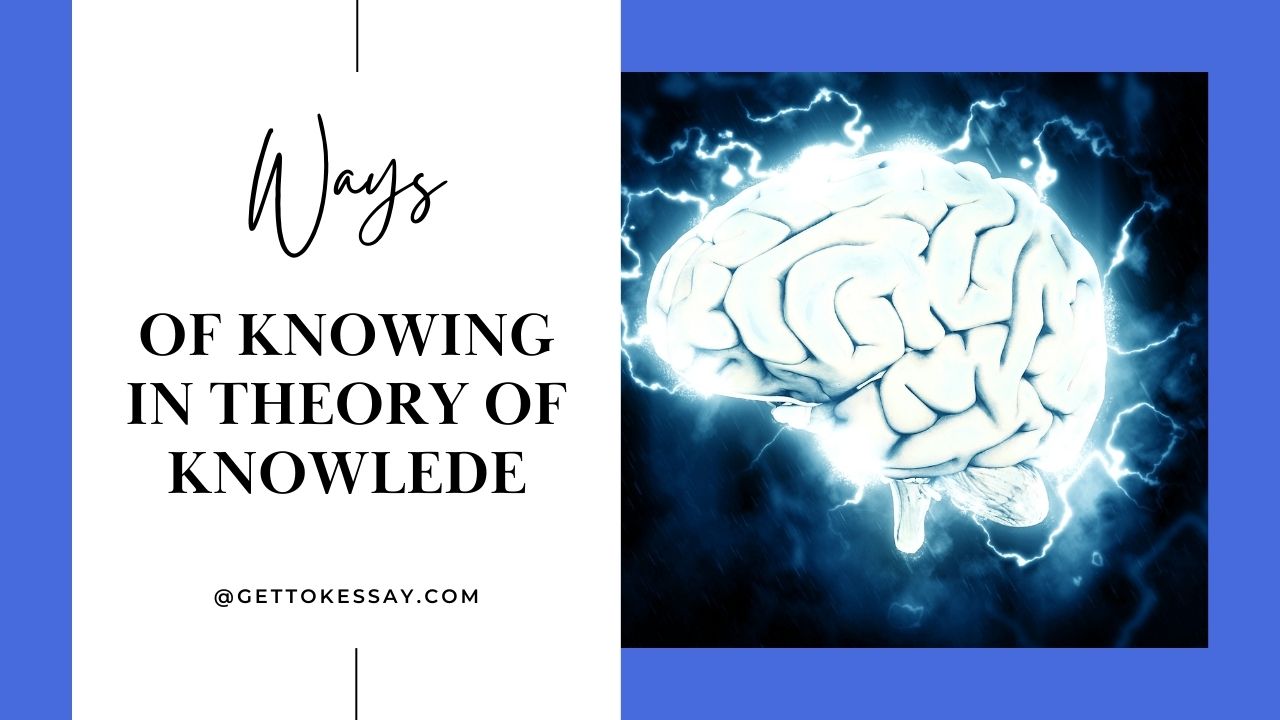Ways of knowing in the TOK course refers to the means by which you know what you claim to know and make sense of things in the world around you.
IB requires you to study these mechanisms because they’re important for the Theory of Knowledge essay.
There are eight distinct ways of knowing in TOK. While it’s important to learn all of them, you will discuss only two in the 1,600-word essay.
Key Takeaways
- Ways of knowing in the ToK course focuses on the means by which you know what you claim to know.
- There are 8 unique ways of knowing. These are language, sense perception, emotion, reason, imagination, intuition, memory, and faith.
- You have to consider ways of knowing in TOK in isolation because they interact in different ways to produce knowledge claims and knowledge questions.
8 Unique Ways of Knowing in ToK Explained
Reading and understanding the different ways of knowing as taught in the course can be difficult because of complex terminologies used in ToK books, but that doesn’t have to be the case.
In the following section, we describe each WOK in its simplicity and present to you only the most important information without burdening you with textbook terminologies.
1. Language
In TOK, language is a set of symbols and signs with defined meaning. Language builds on a set of norms and it has constraints, which are critical to study in Theory of Knowledge.
The purpose of language is to communicate knowledge to a target audience. In fact, no culture can exist or operate without language. But language isn’t perfect by any means. So it’s unlikely anyone can argue that language is faultless.
2. Sense Perception
Many people are only aware of the five senses, which are sight, smell, hearing, touch, and taste. However, there are less known senses that are just as important to TOK.
For example:
If you close your eyes and someone pulls your hand, you can detect which direction the hand travels. That’s sensory perception. Medical experts like to refer to it as proprioception.
In other words, sense perception refers to the means by which we experience our surroundings in everyday life.
Sensory perception is inarguably significant to our existence, but it has some drawbacks.
For example, this way of knowing only describes what human can perceive biologically. Again, an optical illusion is always misleading because it can cheat you to believe in something that doesn’t exist in reality.
3. Emotion
Emotion in Theory of Knowledge is a mean by which we understand thoughts, feelings, and behavior.
Studies unveil emotion as a strong way of knowing in TOK because we make many of our decisions based on how we feel.
The problem is that emotion only applies to an individual. It excludes community because emotion can impart information only to a single individual.
For example, two people may drink sparkling water but express distinct emotional reaction.
4. Reason
Reason is a way of knowing that generates knowledge independent of human senses. Here, we take what we already know, synthesize it into new knowledge, and deduce what we can’t easily perceive through reason.
Let’s take an example.
You’re home. You look outside through the window and notice there are not clouds. You make the conclusion that it isn’t raining.
Here, you rely on reason. You conclude that it’s not raining because there are no clouds. Notably, you’ve applied new knowledge to information you acquired previously.
5. Imagination
Through imagination, we can generate new concepts, pictures, and thoughts to generate new information.
Take businesses for example.
To design products, they start with conceptualization and thereafter bring their idea to life.
However, imagination has its limits. The extent to which humans can image and generate new knowledge depends on real-life experiences.
For example, it’s impossible to use imagination to determine how someone who grew up in a different environment than yours faired in life.
6. Intuition
Intuition focuses on human sensation.
If someone gets a gut sensation based on experience, a series of encounters, or previous events, we call that intuition.
Here’s an example to drive this point home:
A doctor with years of experience in the medical field can make accurate diagnosis with less information because they can easily notice small signs that less experienced doctors miss.
Unfortunately, even intuition as a way of knowing in TOK has its flaw. In particular, this WOK can’t make accurate prediction 100% of the time. That’s why only a few people can produce trustworthy information based on their intuition.
7. Memory
Many IB students struggle to grasp how humans use memory to generate new knowledge.
- Is there anything special about memory?
- Or, can we conclude that remembering things is simply recalling old information from our thoughts and experiences?
Interestingly, humans must employ concepts from memory to generate new knowledge and build new information.
When a student learns to read, they depend on letter meanings from memory. Moving forward, they easily form words and phrases and understand their meaning.
The problem with memory is that our recollection isn’t always dependable.After all, many factors, such as people’s thoughts about incidents and your emotional state, can affect how and whether you recall the events and experiences.
8. Faith
Many intelligent scholars don’t agree that faith is a way of knowing because it’s controversial in nature.
In TOK, faith is the complete trust of something based on spiritual conviction. Therefore, faith is not only impossible to verify but also it contradicts scientific evidence.
Perhaps the most common mistake in human existence is the attribution of faith to religion. Of course, there’s a link between faith and religion. However, religion may arise based on a group or movement.
Final Thought
If you haven’t started your TOK essay and you don’t have enough time left, get in touch with us for professional writing help. Our TOK writing service focuses on prompt selection, in-depth research, custom writing, and timely delivery.

